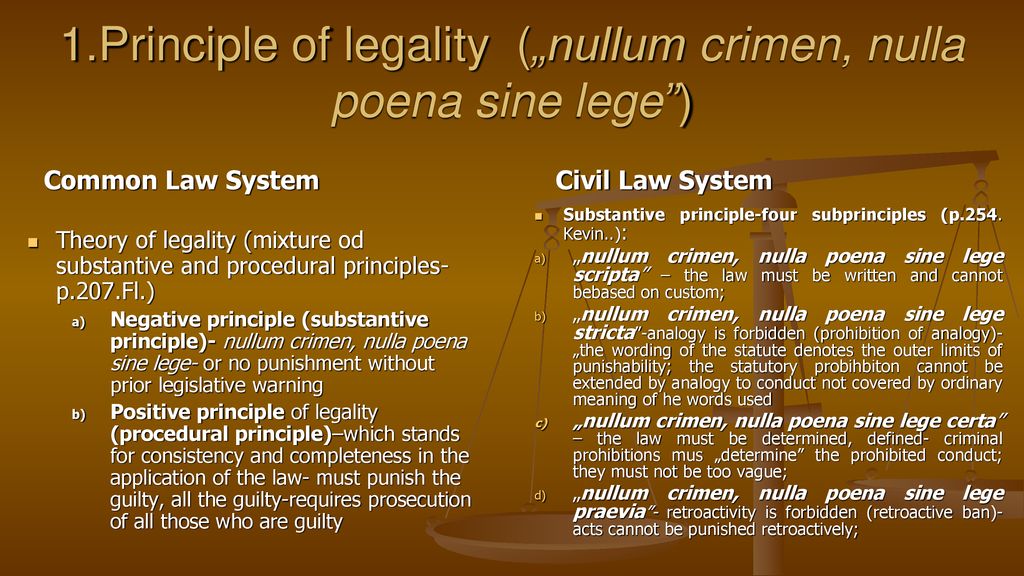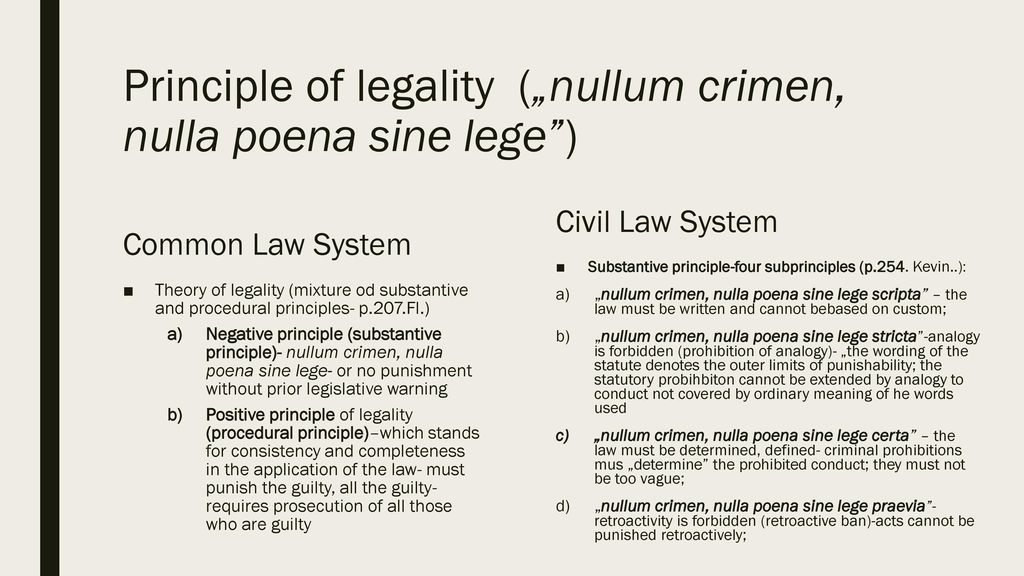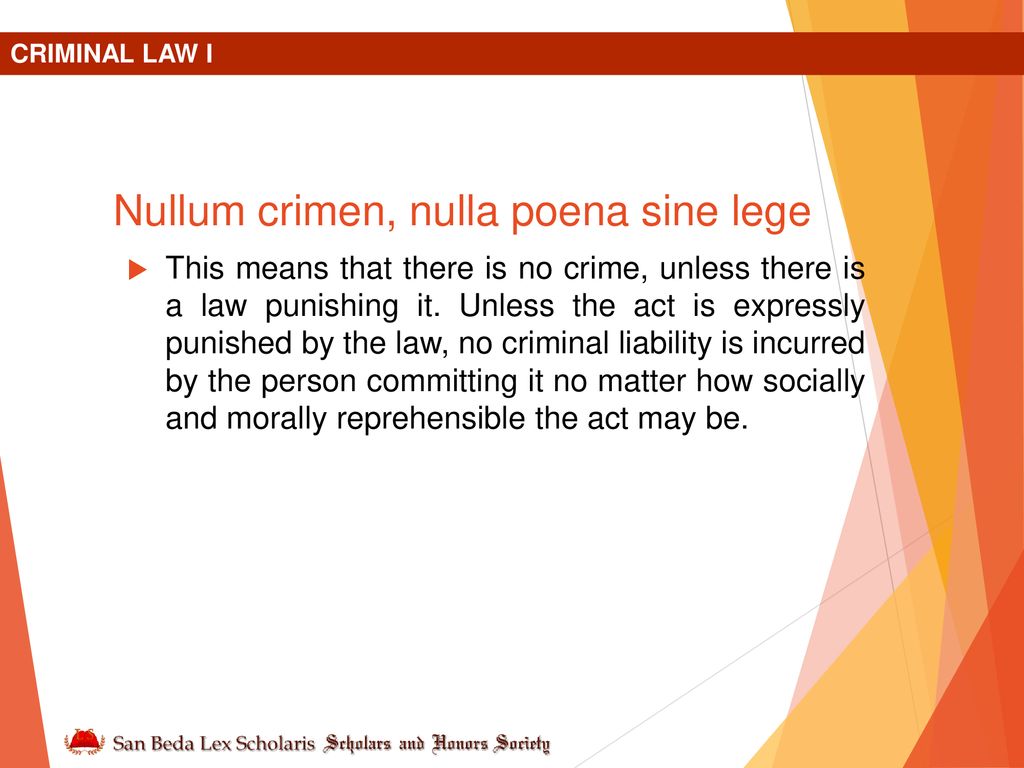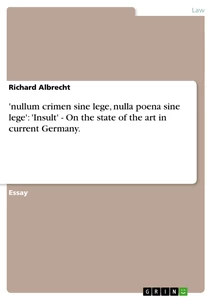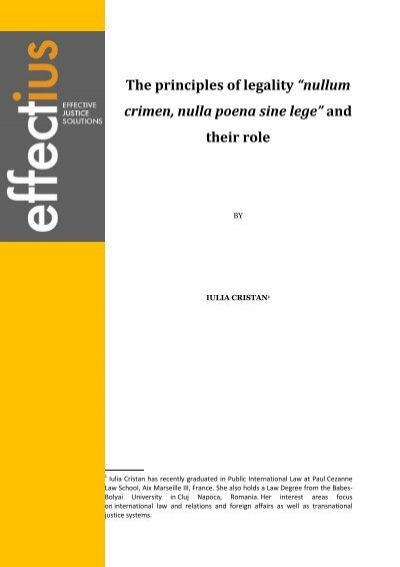Nulla Poena Sine Lege Cases

As previously shown in relation to the ecj case law the principle of offensiveness is once again intended from the perspective of the duty to provide for criminal sanctions to.
Nulla poena sine lege cases. ˈ n ʌ l ə ˈ p iː n ə ˈ s aɪ n iː ˈ l iː dʒ iː nuh lə pee nə sy nee lee jee is a legal principle requiring that one cannot be punished for doing something that is not prohibited by law. Nulla poena sine culpa or the guilt principle is a legal principle requiring that one cannot be punished for something that they are not guilty of. It is recognized as a human right by the court of justice of the european union and all council of europe member states. 3 not surprisingly there are numerous references to criminal law guarantees in the ecthr case law since strasbourg judges operate in a more favourable normative context.
Nulla poena sine lege refers to the legal principle that one cannot be punished for doing something that is not prohibited by law. Cases of force majeure or necessity are exempted from criminal responsibility. Nulla poena sine lege latin for no penalty without a law anglicized pronunciation. Furthermore it establishes that no one can be liable for the crimes comm.
Nullum crimen nulle poena sine lege. One last word. It is therefore reassuring that with the decision of this case the uncertainty which has beclouded the issue of the appropriate imposable penalty has been removed. This maxim states that there can be no crime committed and no punishment meted out without a violation of penal law as it existed at the time.
Nullum crimen nulla poena sine praevia lege poenali latin no crime can be committed no punishment can be imposed without a previous penal law is a basic maxim in continental european legal thinking authored by paul johann anselm ritter von feuerbach as part of the bavarian code in 1813.


